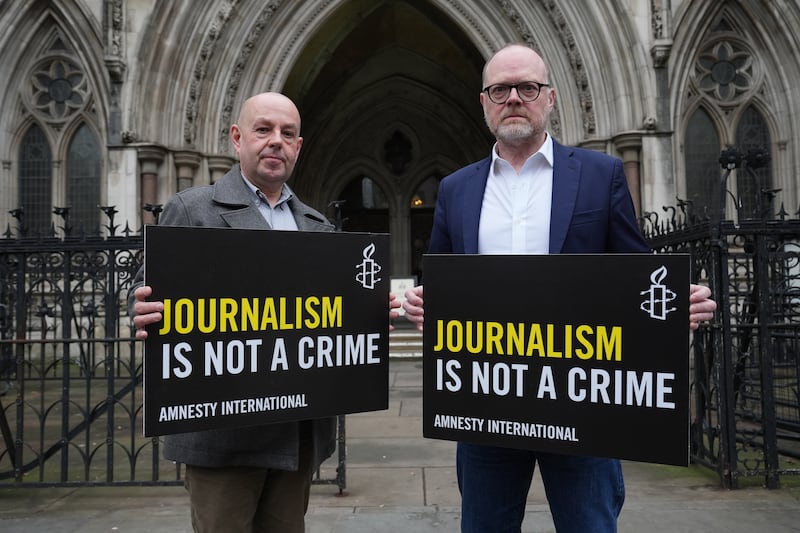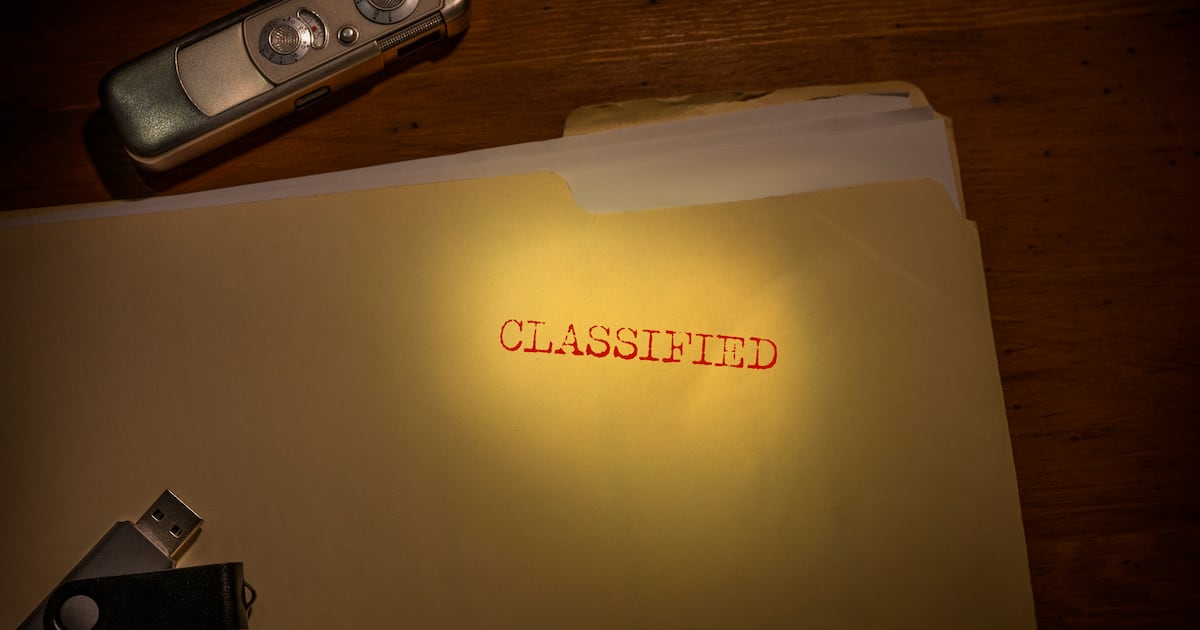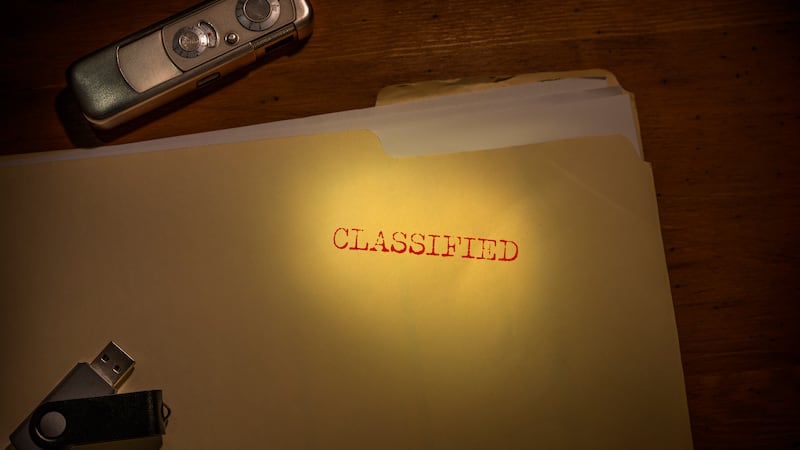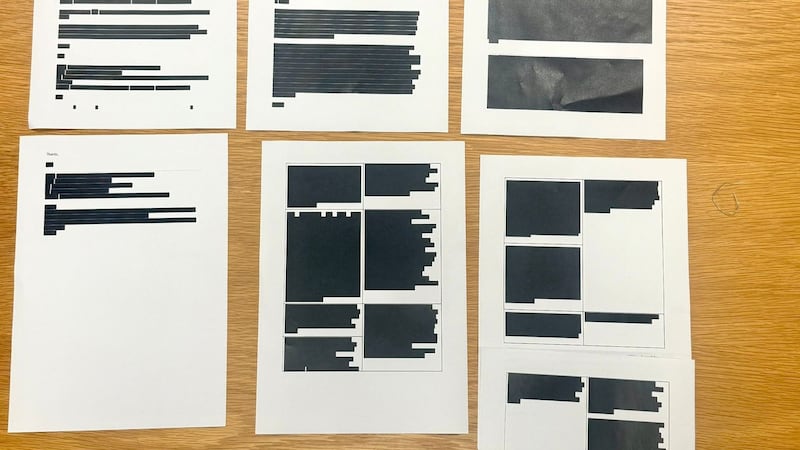A journalist who investigated the death of teenager Noah Donahoe was placed under targeted surveillance by the PSNI, a major review into police snooping has found.
Details have emerged as part of review into to the extent of PSNI spying on journalists, lawyers and non-governmental organisations (NGO’s), which is set to be published on Wednesday in Belfast.
The McCullough Review, headed by London based barrister Angus McCullough KC, was established last year after it emerged the PSNI had been spying on journalists over several years.
The Policing Board and Police Ombudsman are also included in its terms of reference of the review, which covers the period from 2011 – 2024.
While the review is being officially published today, drafts of the 200-page document have been circulated to some interest groups over recent days.
The report reveals that well-known investigative journalist Donal McIntyre was placed under a Directed Surveillance Application (DSA).
Mr McIntyre has been involved in an investigation into the death of teenager Noah Donohoe in June 2020.
The 14-year-old was found in a north Belfast storm drain six days after he was reported missing by his family.
Directed surveillance can include covert recording of a person’s movement’s, conversations and other activities.
In a report to the Policing Board last year the PSNI claimed that during the period covered there had been “no authorised use” of the power.
In his report Mr McCullough states “that has been shown in the work of the review to be incorrect”.
 Journalists Barry McCaffrey (left) and Trevor Birney, outside the Royal Courts of Justice, in London on Tuesday (Lucy North/PA)
Journalists Barry McCaffrey (left) and Trevor Birney, outside the Royal Courts of Justice, in London on Tuesday (Lucy North/PA)
The report confirms that DSA’s were put in place in relation to the surveillance operation targeting journalists Trevor Birney, Barry McCaffrey and a former Police Ombudsman official.
Last year the London-based Investigatory Powers Tribunal (IPT) found the PSNI and Metropolitan Police unlawfully spied on all three.
The tribunal had been examining allegations that the journalists were subjected to unlawful surveillance over a 2017 film about the 1994 Loughinisland atrocity.
Six Catholic men were shot dead in the UVF attack, which involved collusion.
The IPT examines complaints from people who believe they have been the victim of unlawful covert interference by state agencies.
Last week the PSNI apologised after it emerged that it had failed to disclose important information to the IPT about Mr McCaffrey during the tribunal process.
The McCullough Review has also found that a third, unnamed journalist, was the subject of a DSA, although the report states “this appears to have been appropriately obtained and conducted”.
McCullough confirms that a lawyer was also subjected to DSA during the period covered by the review.
“We have found two other DSAs within the current remit of the review both relating to the same lawyer who was apparently reasonably suspected of involvement in serious criminal activity,” the document states.
 Angus McCullough KC
Angus McCullough KC
Mr McCullough also raises “significant concerns” about what are described as PSNI ‘defensive operations’ carried out by its Professional Standards Department.
“This aspect of the review’s findings is a particular concern,” he states.
Mr McCullough reveals that between 2011 and March 2023 a list of journalists’ contact details were checked against PSNI communication system records “with the intention of identifying unauthorised contact between PSNI officers or employees and journalists”.
Mr McCullough referred to the process as ‘washing through’ the “journalists’ numbers against PSNI records”.
The practice was only “formally discontinued” in May last year.
Mr McCullough sets out in his report that no legal advice appears to have been sought “in relation to the legality or propriety of the practice”.
He also says “there seems to have been a lack of awareness until very recently that it might give rise to issues in relation to data protections and the rights of those whose data was being used unknowingly.
Mr McCullough says the practice “does not appear to have been necessary or proportionate” or compatible with the “rights of journalists” whose data was being processed.
Mr McCullough has proposed the PSNI should now refer itself to the information commissioner adding that the “scale and duration” of ‘defensive operations’ is of “significant concern”.
The report confirms that from January 2011 to November 2024 the PSNI made 378 applications for communications data from journalists.
A total of 155 applications were made for lawyer communications data, with 138 being approved.
Of these 37 applications “related to the lawyers’ own data”.
In its report to the Policing Board last year, which covered from up to March last year, the PSNI said applications for communications data had been made in respect of 500 lawyers and 323 journalists.
In total 16 recommendations have been made by Mr McCullough.
Meanwhile, members of the Policing Board were provided with copies of the report on Tuesday and later held a ‘special’ meeting in Stormont, which was attended by senior PSNI officers including Chief Constable Jon Boutcher.
It is understood the board members discussed whether an inquiry under Section 60 of the Police (NI) 2000, which allows the board to hold an inquiry following a report by the Chief Constable, will be necessary.
It is believed potential costs and duration of any such inquiry, up to three years, were discussed but that no decision was reached.



